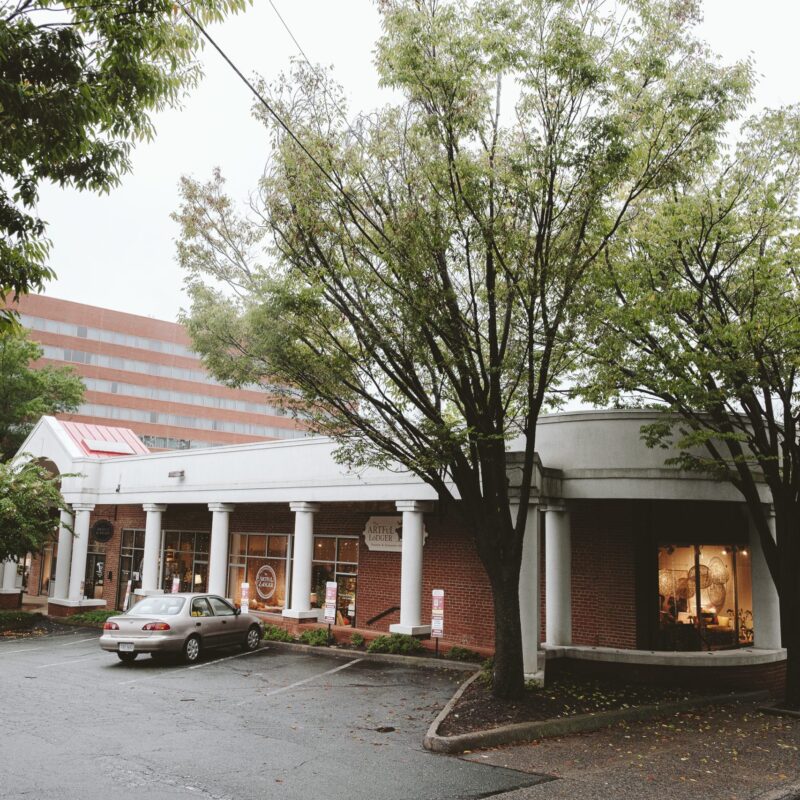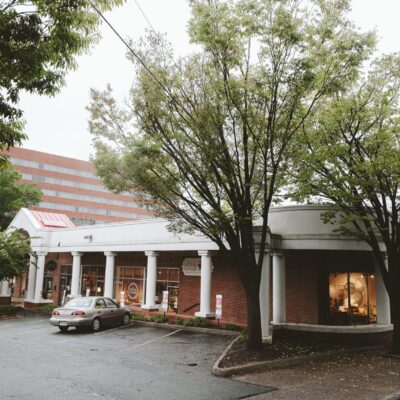The Farm at Red Hill is hot, and we don’t mean that only with respect to their business. Though, figuratively speaking, they are tearing it up on the regional Whole Foods scene, having placed their value-added products in every store in Virginia, D.C. and Maryland over the last year. I mean it’s actually hot. Walking through the operation—almost completely greenhouse-based—is steamy under all that sun-drenched, breeze-free shelter. Plus the Harrisons’ focus on growing hot peppers, including the India-based jolokia—the hottest pepper grown in the world—makes you afraid to touch anything red hanging from a vine with your bare hands lest the searing seeds accidentally make their way into an open orifice. Moreover, at least twice a week, their house and small downstairs commercial kitchen, where they prepare salsa, hummus, tzatziki and jelly that incorporates their peppers, tomatoes and cucumbers, is consumed by the spicy smell of roasting garlic, so many cloves roasting all at once in a home-kitchen-sized oven that the scent is overwhelming enough to make you cough and your eyes burn. Wendy, who tends to greenhouse growing while her husband handles the kitchen operation, says she is looking forward to completion of a separate commercial kitchen outpost building where Richard will prepare all the products before delivering them to stores in three states once a week himself.
|
|
With their prior years’ experience owning a successful electrical contracting business and their entrepreneurial tendency to switch gears quickly when something isn’t working, the Harrisons have cracked the code of small farm success: “Necessity is the mother of invention,” says Wendy.
Specifically, a few years ago, faced with a surplus of good fresh produce about to go bad plus the problem of differentiating themselves from the other Saturday City Market stalls saturated with equally fresh food about to go bad, the Harrisons made a few hundred tubs of salsa from their tomatoes and peppers, threw one on the table for customer sampling and promptly sold out of all of it.
“We sold about 200 tubs, we were so excited,” says Wendy. Contrast that with this year where among local markets such as Rebecca’s, Integral Yoga, GreatValu in Crozet and the Whole Foods outlets, Richard says they sell 10,000 units of value-added products “in a slow month.”
“We expect to be doing $50,000 a month by the end of the year.”
With that kind of success and huge growth on the horizon—for example, their pepper jellies, having the advantage of longer shelf life over their other products will soon go nationwide with Whole Foods—you might think Red Hill doesn’t fit with our quaint notion of struggling small farm, until you see just how hard the Harrisons work and how much bootstrapping they do to make it fly. Both of their teenage children help out around the farm, and all of the farm’s infrastructure, from drip irrigation in the greenhouse to the used and often broken commercial kitchen equipment he nabbed on eBay, has been rigged up by Richard, thanks to his electrical engineering background.
Though Red Hill still sells some its fresh produce through local retail outlets such as Foods of All Nations, the Harrisons are focusing more and more on the value-adds, and it’s no wonder they opted out of a regular stall at the Charlottesville farmers markets this year; they’re too busy chopping peppers for giant batches of salsa and hummus, assembling it into recyclable tubs (as mandated by Whole Foods) and spitting out labels from their used label-maker. Actually, labeling is the job of Harrisons’ 13-year-old daughter.
“She does it while watching ‘Hannah Montana.’ I know when it was a particularly good episode because the labels will be a little crooked,” says Wendy.
|
To avoid accidentally burning your corneas with jolokia-juice stained hands, wear gloves while chopping these and other hot peppers. $1.99 from Harris Teeter. |
Atomic salsa
From Wendy and Richard Harrison, The Farm at Red Hill
4 lbs. vine-ripened tomatoes
1 red pepper
1 green pepper
1/2 onion
1/4 cup garlic, minced
1.5 Tbs. olive oil
1/4 cup vinegar
2 tsp. lemon juice
2 tsp. lime juice
1 carrot
2 Tbs. fresh cilantro
black pepper and sea salt to taste
1 Tbs. plus 2 tsp. jolokia peppers, pureed
Combine in food processor and pulse a few times for chunky salsa. Yields 5 lbs.
“We only sell this one at festivals when we can warn people in person that it may be dangerous to their health!” says Wendy.
Legal disclaimer: By preparing and ingesting this dish you hereby agree that if you breathe actual fire or emit smoke from your ears, C-VILLE is not responsible.
 |
FIRE FACTOR
How hot is hot? Here’s how peppers measure up from hottest to not:
1. Bhut jolokia
2. Orange habanero
3. Scotch bonnet (yellow habanero)
4. Cayenne
5. Jalapeno
6. Hungarian wax
7. Bell pepper
Back to FOOD & DRINK ANNUAL 2009
 Some like it hot: The Farm at Red Hill’s greenhouse-grown hot peppers look deceivingly innocent, but pack a punch to the palate.
Some like it hot: The Farm at Red Hill’s greenhouse-grown hot peppers look deceivingly innocent, but pack a punch to the palate.





